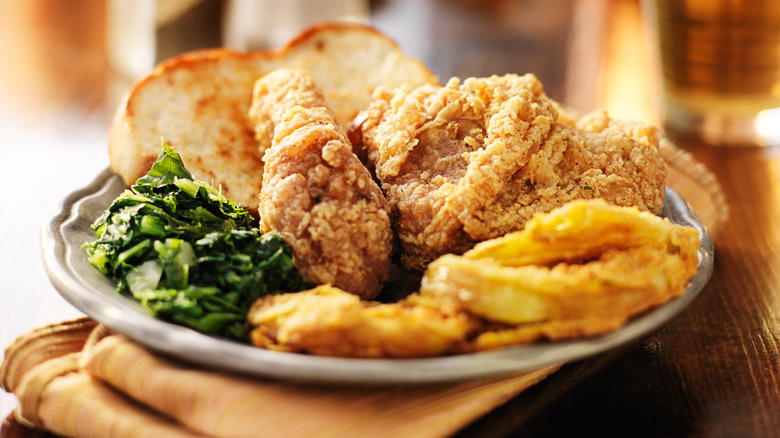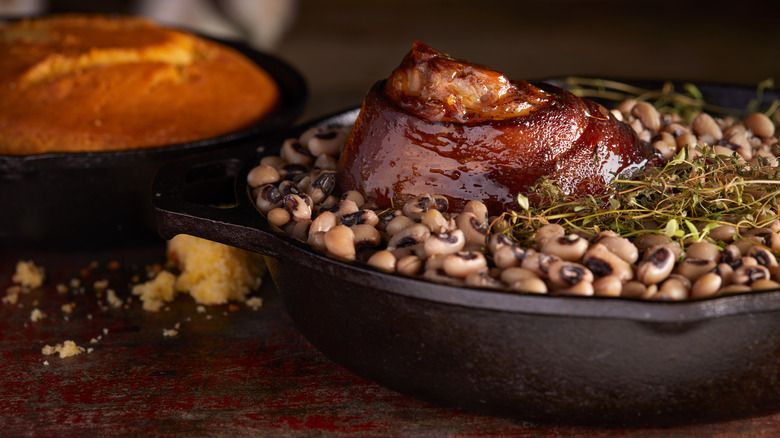The Symbolic Difference Between Soul Food And Comfort Food
When life starts to feel a little out of our control, which it, all too often, does, there's nothing like a little comfort food to slow things down and reconnect you to your roots. When we say we want comfort food, what we may really mean is that we want to eat something that makes us feel like a kid again. It gives us the nostalgic feeling of being safe and cared for. "Comfort food" is most often used to describe carbohydrate-, sugar-, and fat-heavy dishes that work to activate the brain's reward system, flooding the body with dopamine (per Live Science). It might be good for the soul, but it's not necessarily soul food.
For those who grew up outside of the South, comfort food may come in the form of a gooey grilled cheese sandwich and a warm mug of tomato soup, or a pillowy baked potato with all the fixings. However, once you cross the Mason-Dixon, comfort food often comes in the form of crunchy fried chicken, buttery biscuits, and collard greens, delightfully simmered with ham hock. Whether or not these dishes are considered Southern cooking or soul food is a matter of culture and tradition.
Chef and author Virginia Willis told the New York Times, "There's a huge piece smack in the middle of the Southern food conversation and that's the Black-white divide." While "Southern food" has come to represent white Southern cooking – much of which was adapted from the techniques of enslaved Black people – "soul food" has deep roots in African American history.
Black history and culture define soul food
Soul food originates from the Deep South, a collection of states – including Mississippi, Louisiana, Georgia, Alabama, and South Carolina – where vast numbers of Africans were brought during the Transatlantic Slave Trade. Many of the mouthwatering dishes we enjoy today are connected to the creativity of enslaved African peoples who transformed inadequate food provisions into delicious dishes by using cooking techniques from their mother countries. The name came later.
In the 1940s, African American jazz musicians were losing gigs to white musicians who embraced the genre. As soul food expert and James Beard Award-winning author Adrian E. Miller] explained to Epicurious, Black musicians decided that the only way to set themselves apart was to add a little bit of flavor that couldn't be replicated by white artists. They did this by imbuing their melodies with the sounds of the gospel music heard in Black churches across the South. They called it soul music. By the 1960s, people had assigned the word "soul" to Southern Black cooking.
Britannica says the term soul food appeared in print for the first time in 1964 amid the "Black Pride" movement. Other sources, like chef and restaurateur Millie Peartree, say it appeared earlier in a 1962 essay by poet and civil rights activist Amiri Baraka (per Delish). Either way, soul food is a cuisine deeply connected to Black culture – peppered with resilience and community.

